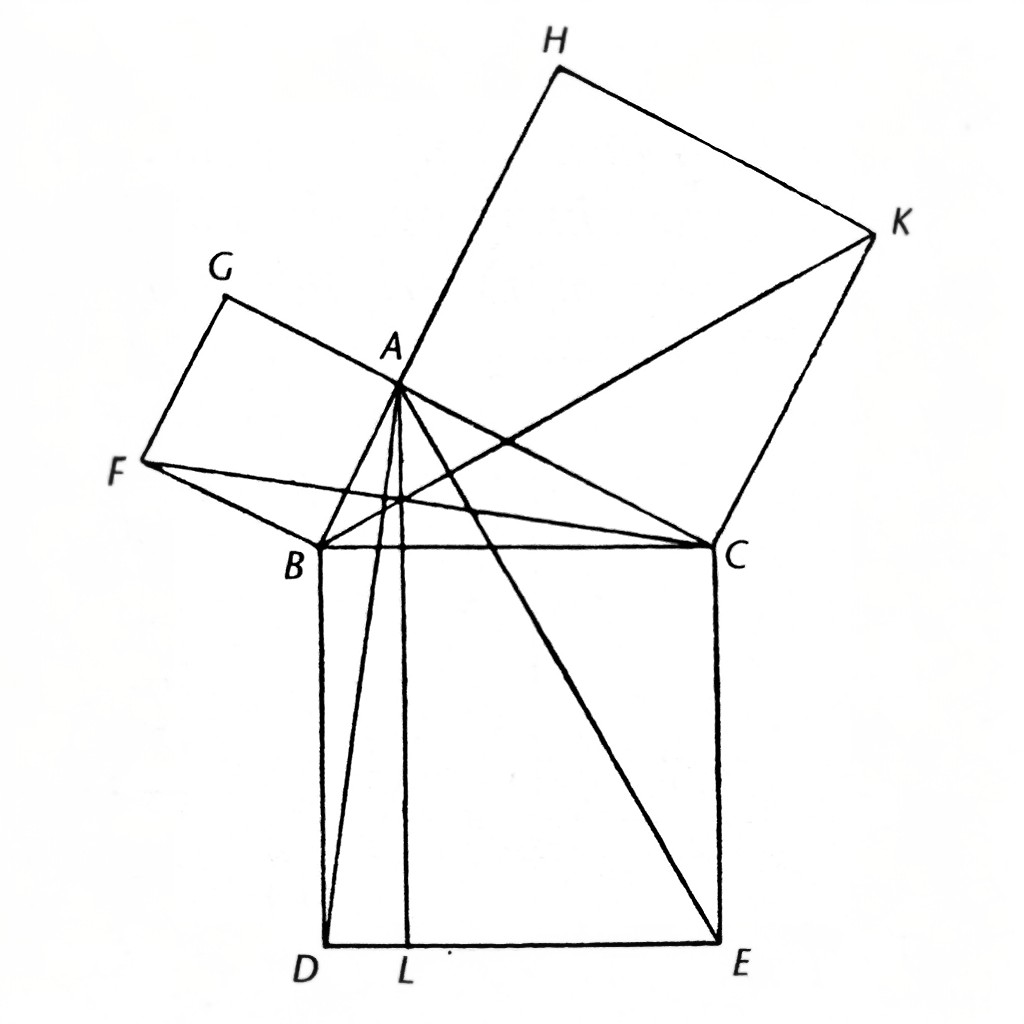Germ Theory
Diseases used to be associated with paranormal powers or the wrath of gods in most cultures. The discovery of microorganisms and advancement of medicine may be our civilization's greatest achievement.
God's an unfalsifiable claim, so there really isn't anything that could test that hypothesis.
Pretty much any scientific test/discovery that counters anything in a religious text whose adherents view the text as completely truthful and literal. But sciencey stuff might not have much of an effect on religious folks who view their texts less literally.
But anyways... heliocentrism, germ theory, gravity, evolution through natural selection, probably a huge chunk of the field of archeology, plate tectonics, radiometric dating, probably the written language at various points in human history (but that's not really a discovery), trans species organ transplants, decoding DNA, direct genetic engineering, CRISPR, radio telescopy.
Letter from Charles Darwin to Asa Gray (22nd May 1860)
With respect to the theological view of the question; this is always painful to me.— I am bewildered.— I had no intention to write atheistically. But I own that I cannot see, as plainly as others do, & as I shd wish to do, evidence of design & beneficence on all sides of us. There seems to me too much misery in the world. I cannot persuade myself that a beneficent & omnipotent God would have designedly created the Ichneumonidæ with the express intention of their feeding within the living bodies of caterpillars, or that a cat should play with mice.
On that note, what's up with the obligate coprophagy of the koala? And their famously smooth brains? I'd make the koala, were it I in the high seat, but a kind and caring creator wouldn't.
Some herbivores can't digest their food all the way, cows get around it by having more than one stomach and also chewing their cud (vomiting up from first stomach and rechewing). Rabbits do the same thing as koalas, partially digest their food and eat their poop.
Religion exists for a number of reasons, but the primary purpose it serves an individual is as a foundation for their overall worldview.
"Faith" as many call it, serves to answer questions we don't have answers to.
Where did we come from? Why are we here? What happens after we die?
Religion gives us comforting answers to these questions, and as these questions are ultimately unanswerable, can do so in perpetuity.
Religion has also tried to answer questions that we didn't yet have answers for.
What are the sun, moon, and stars? Why are there tides? Why does it rain?
God was long accepted as the source of these things, and prayer was thought to be the best way have any influence.
But today we have answered basically all the major questions. We have a working model of the entire solar system, down to the weather on other planets. We figured out how to turn rocks into computers. All that's left is the unanswerable.
As for where we come from, we've filled in a lot of gaps. Evolution is now the accepted answer for where Humans came from, now the question is where life itself came from, and if there's life outside of Earth (and how much).
Philosophy has given us plenty of options for what our purpose is. There are plenty of ways to wrap your mind around your own identity without turning to the supernatural.
And our study of anatomy and neurology suggests that our conscious self ceases to exist after death, the only thing standing in the way of that belief is the very human tendency to be in denial of our own mortality.
Translative spoken word by the time a second hand account of the word of god becomes the word of the person speaking. Weird god never came back once we had verbatim recording techniques to address these inaccuracies.
Science and religion are often compatible, I know of some Hindu thinkers (for example) who say scientific knowledge is to be taken as truth and religious truth should not contradict it - just that this scientific knowledge cannot explain the whole mysteries of the cosmos. You might be aware of "the god of the gaps" and arguments like that, or that God somehow created the universe using the laws of physics as we understand them. Historically, scientific thought and religious thought were often united and people pursued science and philosophy due to attempting to understand God (like many Islamic scholars in the 7th century or like Renee Descartes who ultimately sought to prove the existence of God by pure reasoning). Science as a complete system of belief without some religious aspect is actually a fairly recent phenomenon that likely had very little to do with any particular scientific discovery.
Indeed, science can do very little to explain why things happen. It's great at explaining how - e.g. science is great at explaining how fire burns or how a calculator can display an answer but it can be iffy on why. Now, "why" fire burns is probably more of a malformed question like what's north of the north pole but we're human, we like to ask why and seek purpose. Meaning makers.
The decline of religiosity wasn't really driven by science showing biblical stories weren't real, it's a process driven by material reality and class relations. Although many people considered themselves Christian or religious in the west, they were very Deist and didn't think God had much influence with the world apart from answering paradoxes like what was the primum movens etc.
Going further back, religion wasn't a choice or something to reason to - it was just your life and your community. In medieval Europe, you didn't really reason your way into a system of beliefs they all tied together into an economic system called the feudal mode of production. You just were a Christian and so was everyone you knew. Maybe some monks debated some esoteric aspects of theology but most people just lived their lives. This lasted for a while through to the Enlightenment and the emergence of capitalism in the 17th century. Except for some malcontents and rebels, people still didn't reason towards being Christian, say. It was just your life - more like a hangover from that older mode of production and social cohesion than something necessary to maintaining capitalism.
Fast forward to the actual decline of religiosity and rise of spiritual none-of-the-aboves and nothing-in-particular. This was a process started in the mid 20th century (not really in WW1 which was conceived often as a holy or religious war by the soldiers and officer class including miracles and appearances of angels and so on). In reaction to the rise of consumerism and individualism - now religion became a choice or affectation! This is where we start to see the irreligious begin their massive growth but especially by the beginning of the 00s. It's tempting to say Quantum Mechanics, GR, a scientific basis for cosmological origins like the big bang are responsible for the loss of religion - but in my view, these just coincided due to a third cause (that of economic changes and the settling in of mature capitalism).
I'm curious as to how people toughed it out despite most christian religious institutions being so uniformly corrupt and plain irritating. Shit, the crowd FSTDT dunks on, american politicians, and internet theology were all it took for me to get so deeply disillusioned I wanted to just cut strike everything from my mind, regardless of who's right or wrong. Merely not having other options to a point where leaving is unthinkable? Fear of reprisal from legal and cultural consequences?
Then again, I suppose at that point they would've just shifted to a different, less institution-focused denomination instead of just saying "fuck the whole thing" like I did. It wasn't a matter of the facts, it was a matter of me being fucking sick of them.
There aren't any. Some things will disprove specific religious ideas, but that's about it.
Psalms 19:1-2
"The heavens are telling of the glory of God; And their expanse is declaring the work of His hands. Day to day pours forth speech, And night to night reveals knowledge."
Yes you absolutely can. Here's an extremely trivial example: 6 is not prime, which I can prove by simply saying 6 = 2*3. Bam, I've proved a negative.
While proving that 6 is not prime illustrates proving a negative in math, the caution arises in complex, real-world scenarios of non well defined domains. Demonstrating absences beyond math's clarity and definiteness can be challenging if not impossible to say the least.
You are just repeating a myth. A quick look from wikipedia:
Logicians and philosophers of logic reject the notion that it is intrinsically impossible to prove negative claims.[11][12][13][14][15][10][16][17] Philosophers Steven D. Hale and Stephen Law state that the phrase "you cannot prove a negative" is itself a negative claim that would not be true if it could be proven true.[10][18] Many negative claims can be rewritten into logically equivalent positive claims (for example, "No Jewish person was at the party" is logically equivalent to "Everyone at the party was a gentile").[19] In formal logic and mathematics, the negation of a proposition can be proven using procedures such as modus tollens and reductio ad absurdum.[15][10] In empirical contexts (such as the evaluating the existence or nonexistence of unicorns), inductive reasoning is often used for establishing the plausibility of a claim based on observed evidence.[20][10][21] Though inductive reasoning may not provide absolute certainty about negative claims, this is only due to the nature of inductive reasoning; inductive reasoning provides proof from probability rather than certainty. Inductive reasoning also does not provide absolute certainty about positive claims.[19][10]
Demonstrating
absencesanything beyond math's clarity and definiteness can be challenging if not impossible to say the least.ftfy
Anyway, just a tip for future comments on the internet: I'd suggest not being an asshole in your very first reply to someone you disagree with unless there's a good reason to be, because it makes you look extremely silly if your shitty comment is actually just wrong. I wouldn't have commented in this thread at all if you hadn't been an immediate asshole to frightful_hobgoblin, but here we are.
Well thats fucking concerning. Perhaps get the basics down before u start practising anything.
Hey look at that hexbear has shown up to be anti science and anti logic because eliminating doublethink doesnt align with the communist tagline.
State your position calmly. What are you trying to say?
Using insults doesn't make you right.
Its a common, clear, and logic extension of the scientific process that you cannot prove a negative. I dont gets whats so complicated about this. Please since you are such an expert in the ways of calmly stating positions give me 1 single example of proving a negative with science.
A woman menstruating proves the negative on her being pregnant.







